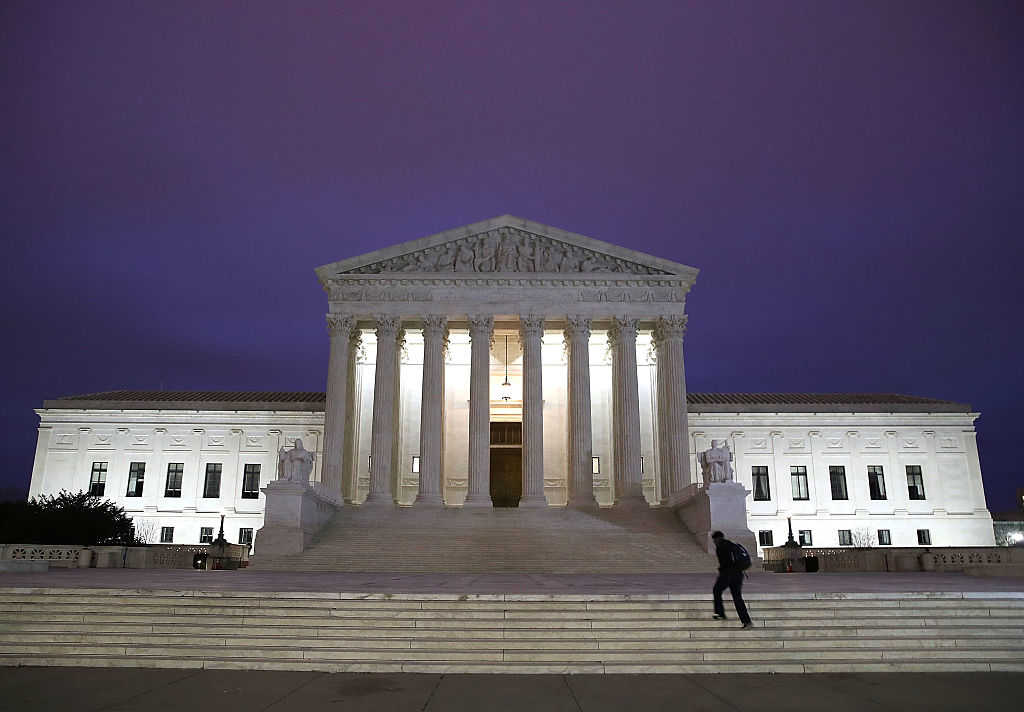Few issues are as consistently contentious as the First Amendment and the associated debate over the separation of church and state. A stark reminder of that paradigm came on Monday when the U.S. Supreme Court handed down a landmark victory to religious schools with its Trinity Lutheran Church of Columbia, Inc. v. Comer ruling.
As Faithwire previously reported, the high court ruled 7-2 that Missouri went too far in refusing to allow a Lutheran church to receive state funds for playground resurfacing.
READ: SCOTUS Hands Major Victory to Religious Schools: ‘A Triumph for Religious Freedom’
At the center of the dispute is a church-owned preschool’s claim that it was blocked from receiving a grant for these rubber playground materials due to its affiliation with Trinity Lutheran Church in Columbia, Missouri.
The rapid and fierce reaction from both sides of the dispute, raging from rage to elation, only underscores the intensity surrounding the discussion over faith in the public square. Take, for instance, the harsh reaction from the Freedom From Religion Foundation, an atheist activist group known for pushing back against faith in the public square.
Some advice from our marquee after today's disheartening Supreme Court ruling. pic.twitter.com/Ew80xzrYMs
— FFRF (@FFRF) June 26, 2017
“The U.S. Supreme Court issued a decision today that could inflict incalculable damage upon the constitutional wall of separation between state and church,” the opening of a statement from the group read. “Seven justices turned their backs on the hallowed principle that citizens should not be forced to financially support churches and church schools.”
The text continued, “The decision strikes a blow, possibly fatal, against treasured provisions in a majority of state constitutions whose prohibitions against taxpayer support of religion are more explicit than the First Amendment’s Establishment Clause.”
The FFRF also argued that the case should not have been heard, as it said that Missouri changed its policy before oral arguments were heard back in April. But that did little to dissuade the justices from hearing it, atheist activists proclaimed.
Meanwhile, Alliance Defending Freedom, the legal firm that represented Trinity Lutheran in the case, praised the decision as a First Amendment victory.
“Today, the Supreme Court of the United States ruled 7-2 that it is unconstitutional for the state to treat churches and other religious organizations worse than everyone else simply because they are religious,” ADF’s Sarah Kramer wrote. “This is great news! And it sets an important precedent to protect religious freedom. The government should never treat people of faith like second-class citizens.”
Kramer called the initial decision to reject the playground grant “blatant religious discrimination” and praised the court for ruling in favor of the school.
Today was a good day for Religious Freedom at #SCOTUS. #TrinityLutheran #MasterPiece https://t.co/BNjxKH43az pic.twitter.com/T9kfzgvVgi
— Alliance Defending Freedom (@ADFLegal) June 26, 2017
“Practically speaking, this decision means that the State of Missouri cannot exclude religious organizations and individuals from generally available public benefits simply because of their beliefs.” she wrote. “If the government is permitted to do that, then what would keep it from denying public services like police and fire protection to churches or other religious nonprofits?”
Clearly, the two sides couldn’t be further from one another when it comes to addressing the complex relationship between religious institutions and the government.
As Deseret News reported last year, the latest legal battle touched off back in 2012 when the Trinity Lutheran Church Child Learning Center applied for a grant for the “Playground Scrap Tire Surface Material Grant Program,” which is offered by the Missouri Department of Natural Resources.



